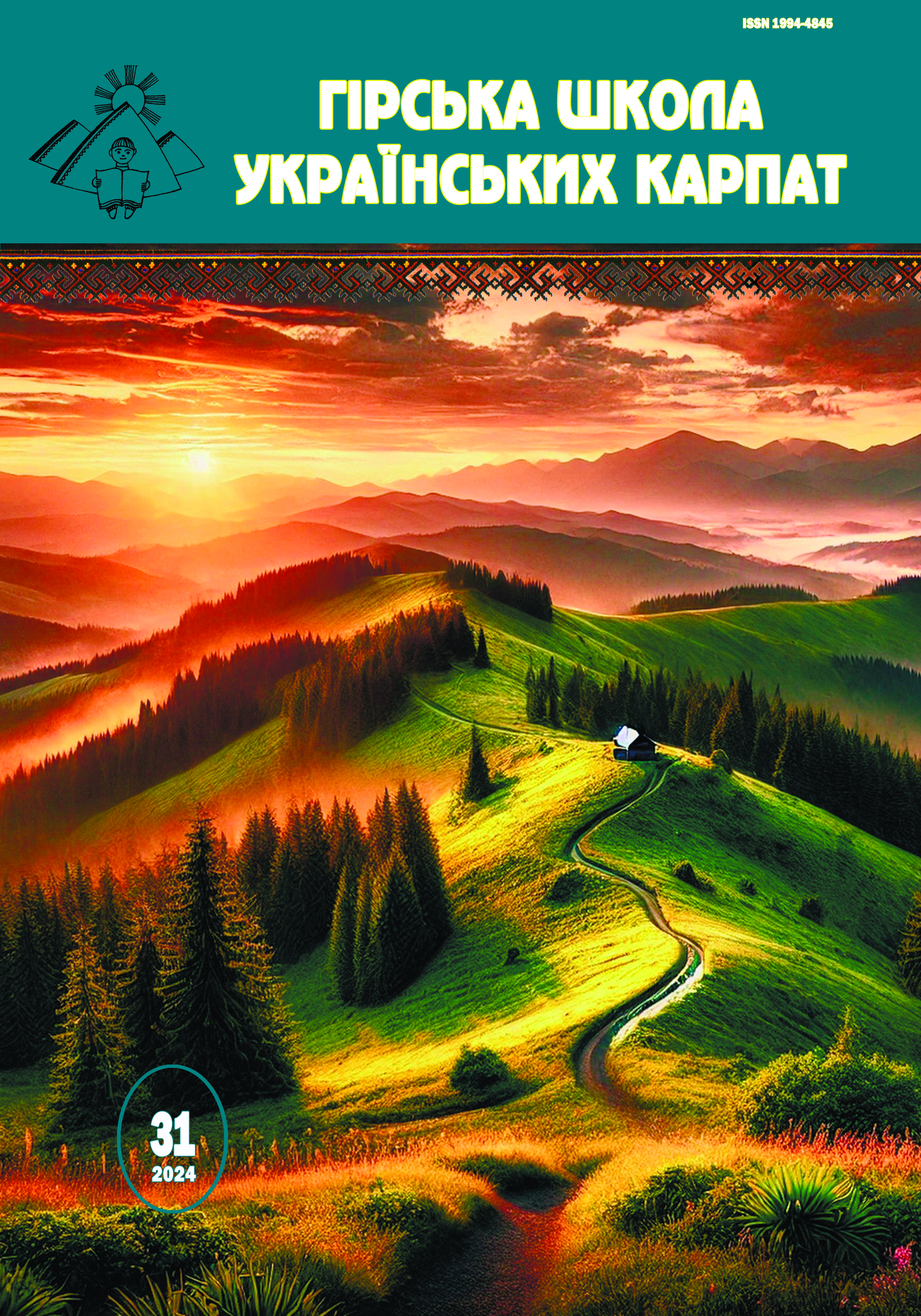THE FORMATION OF NATIONAL AND CULTURAL IDENTITY IN SCHOOL HISTORY EDUCATION: A MULTICULTURAL APPROACH
DOI:
https://doi.org/10.15330/msuc.2024.31.17-21Keywords:
formation, national and cultural identity, multicultural approach, content of school history education, student, growing personality, factors.Abstract
The article examines and analyses philosophical, cultural, socio-psychological, and pedagogical literature, as well as Internet resources, related to the research problem. It characterises the essence of national-cultural identity in the context of school history education, considering the multicultural approach as an integrative category. Additionally, it identifies the key internal (subjective) and external (objective) factors involved in forming the national-cultural identity of a growing personality within the framework of school history education. The author characterises the external factors: ideological and strategic, information and manipulative, and religious of historical accuracy and justice, which ensure objective coverage of the history, culture, traditions and beliefs of Ukrainians and nations that have been living together in Ukraine since time immemorial, with the obligatory wide popularisation of their common historical and social achievements. It has been determined that a developed national and cultural identity in an individual is a unity of three components: a sense of belonging to their ethnic group and people, characterised by love and respect for their national traditions and the history of their community, as well as a desire to master their national language and culture; a sense of belonging to the multicultural Ukrainian society; and patriotism, which is inherently connected with the rejection of national (ethnic) vanity; a sense of belonging to the global community (including the European community as part of it), as well as a sense of responsibility not only for the fate of their people and their multinational country but also for the entire world.


